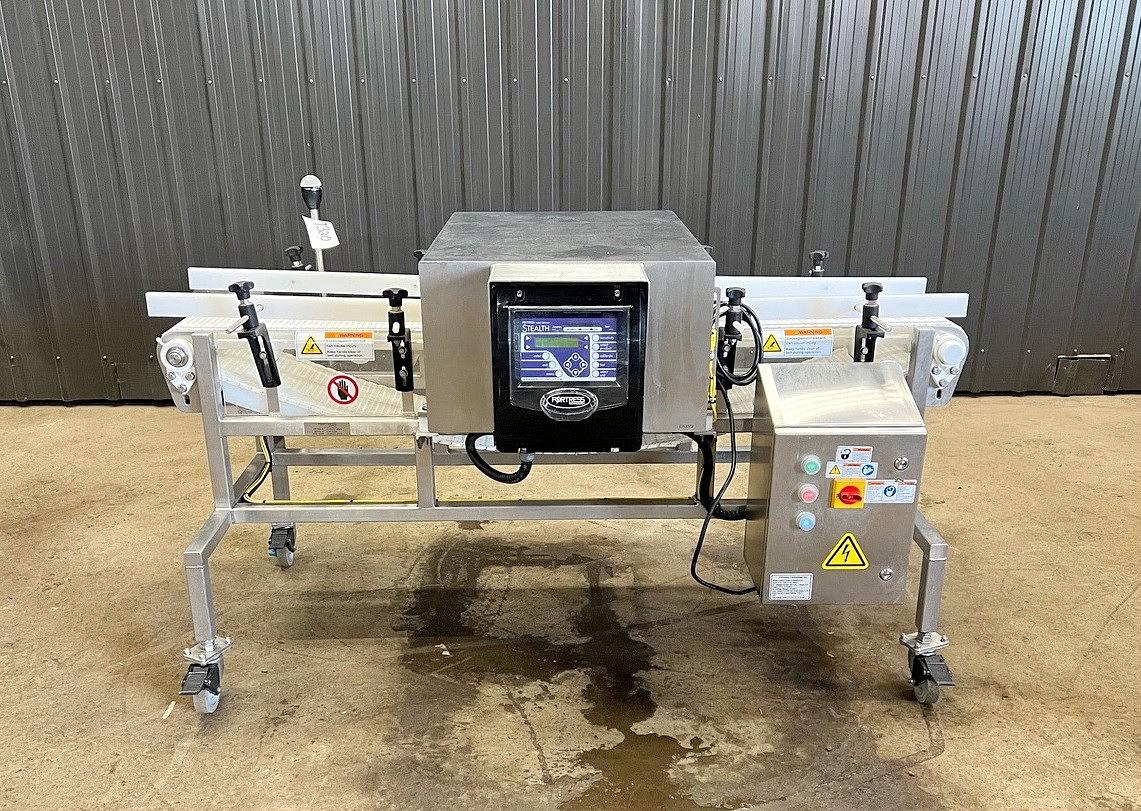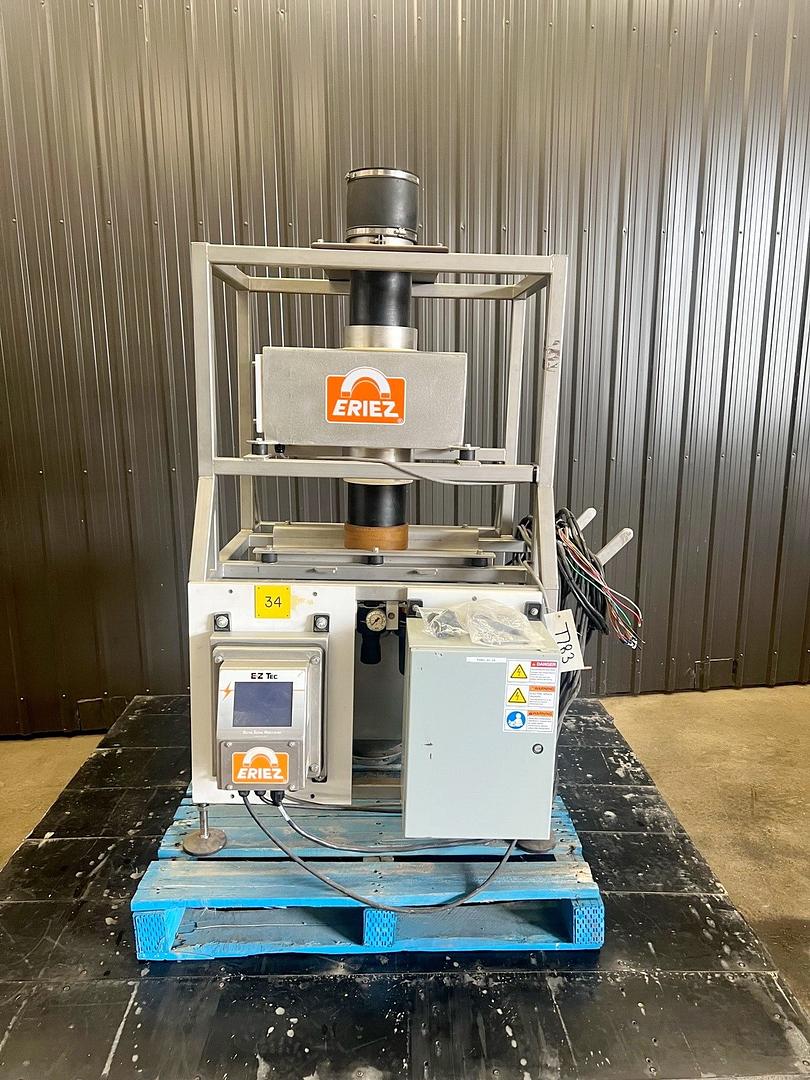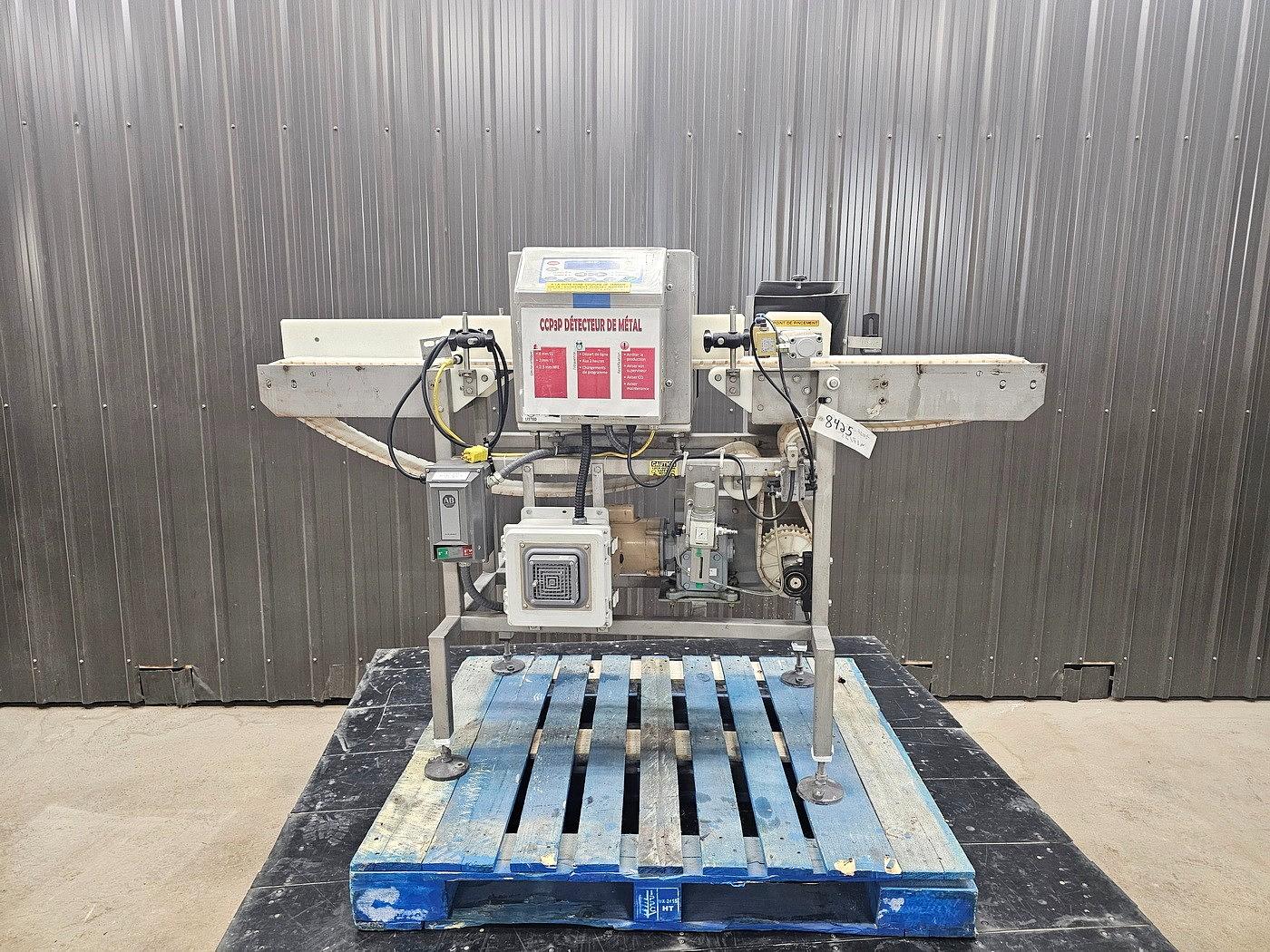La détection de métaux dans l’industrie alimentaire : les solutions Carter-Wilson
L’industrie agroalimentaire est soumise à des exigences strictes en matière de sécurité et de qualité des produits. La présence de contaminants métalliques est un risque majeur pour la santé des consommateurs et la réputation des marques. Pour répondre à ce défi crucial, Carter-Wilson propose une gamme de détecteurs de métaux haute performance, adaptés aux besoins spécifiques du secteur alimentaire. Carter-Wilson est spécialisé dans la vente d'équipements industriels usagés. Nous proposons une variété de solutions pour cette industrie exigeantes. Découvrez les aspects essentiels de nos appareils de détection de métaux dans l'industrie alimentaire.

Détecteurs de métaux pour l’industrie alimentaire : de quoi s’agit-il ?
Les détecteurs de métaux sont devenus des éléments indispensables au sein des chaînes de production agroalimentaires, mais aussi dans les industries pharmaceutiques et d’emballage. Leur rôle principal est d’identifier et d’éliminer les contaminants métalliques qui peuvent compromettre la sécurité des produits.
Les détecteurs proposés par Carter-Wilson répondent aux normes strictes de ces industries sensibles :
- la sécurité alimentaire (HACCP, IFS, BRC, FDA),
- les exigences pharmaceutiques (GMP, USP)
- et le contrôle qualité en emballage, pour éviter les corps étrangers dans les films plastiques, cartons.
Les appareils de détection de métaux Carter-Wilson sont accompagnés de plusieurs avantages :
- une sensibilité élevée, permettant de détecter même les plus petites particules métalliques,
- une intégration facile dans les lignes de production existantes,
- une conformité totale avec les réglementations internationales en vigueur,
- l'utilisation de matériaux hygiéniques tels que l’acier inoxydable, avec une conception sans angles morts pour faciliter le nettoyage et prévenir la contamination.
Carter-Wilson assure par ailleurs sa clientèle d’un accompagnement de qualité pour toutes ses prestations :
- prix compétitifs,
- service à la clientèle premium,
- inspection mécanique de base,
- possibilité d'expédition à travers l’Amérique du Nord.

Comment intégrer un détecteur de métaux pour aliments dans votre chaîne de production ?
L’emplacement optimal d’un détecteur de métaux dans une usine agroalimentaire dépend du flux de production. Plusieurs points stratégiques peuvent être envisagés :
- en début de ligne, pour détecter les contaminants présents dans les matières premières telles que la farine et les épices,
- après le process, pour capturer les métaux introduits lors de l’usinage, comme les fragments de couteaux ou les vis, dans des produits tels que les viandes hachées et les légumes coupés,
- avant l’emballage, pour vérifier l’absence de corps étrangers juste avant le scellage des produits sous vide ou des biscuits,
- en fin de ligne, pour constituer un dernier contrôle avant l’expédition des cartons et des palettes.
Une stratégie d’installation bien planifiée assure une couverture complète et une sécurité maximale. Nous pouvons vous conseiller sur les meilleurs emplacements pour l'intégration de vos détecteurs de métaux usagés au sein de vos lignes de production.

Quels contaminants sont détectés ?
Les contaminants métalliques se classent principalement en trois catégories :
- Ferromagnétiques (ferreux) : Incluent le fer et l’acier. Ils sont très faciles à détecter en raison de leur forte réponse magnétique.
- Non-ferreux : Comprennent le cuivre, l’aluminium et le laiton. Ils sont détectables, mais nécessitent une sensibilité accrue de la part du détecteur.
- Inoxydable : L’acier inoxydable (notamment les types 304 et 316) est le plus difficile à détecter en raison de sa faible conductivité et de son caractère souvent non magnétique.
Carter-Wilson peut proposer des détecteurs qui utilisent des fréquences multiples et des algorithmes avancés pour identifier même les particules d’inox, souvent les plus problématiques dans l’industrie alimentaire. La détection efficace de ces contaminants dépend de la technologie utilisée et des caractéristiques spécifiques du produit inspecté.
4 catégories de détecteurs de métaux pour l’industrie alimentaire
Pour répondre aux divers besoins de l’industrie alimentaire, différents types de détecteurs de métaux peuvent être disponibles ;
- détecteurs à convoyeur : ces appareils sont spécifiquement pensés pour les produits en vrac ou emballés tels que les biscuits, les plats préparés et les surgelés. Le produit passe sur un tapis à travers un tunnel de détection. Ces systèmes offrent un grand débit et sont adaptés aux lignes de production à haute vitesse. Carter-Wilson propose une variété de convoyeurs et peut également fournir des détecteurs de métaux intégrés à des systèmes de convoyage usagés.
- détecteurs à chute gravitaire : ils sont conçus pour les poudres et granulés comme la farine, le sucre et les céréales. Le produit tombe librement à travers un détecteur en forme de tube. Leur avantage principal est l’absence de contact avec le détecteur et la facilité de nettoyage.
- détecteurs à pipeline : adaptés aux liquides et pâtes tels que les sauces, le lait, les yaourts et les purées, ces dispositifs sont intégrés directement dans les tuyaux de production, permettant une détection en continu sans interruption du flux.
- détecteurs à vérification manuelle : ces appareils sont destinés aux petits lots et les contrôles ponctuels, notamment pour les produits artisanaux. Le produit est passé manuellement sous une arche de détection. Ils représentent une solution économique pour les entreprises.
Chaque type de détecteur est conçu pour s'adapter aux caractéristiques spécifiques des produits et aux exigences de production. Carter-Wilson, avec sa vaste gamme d'équipements industriels usagés peut proposer des solutions de détection de métaux variées, répondant aux besoins spécifiques des entreprises alimentaires.
Quelles industries alimentaires sont concernées ?
La détection de métaux est cruciale dans une vaste gamme d’industries alimentaires :
- Produits carnés et poissons : risque de fragments de couteaux et d’agrafes. Des détecteurs à haute sensibilité pour petits morceaux d’inox sont nécessaires.
- Boulangerie et pâtisserie : risque de fils métalliques et de pièces de machines. Les détecteurs à convoyeur sont souvent privilégiés pour les produits mous.
- Produits laitiers : risque de particules provenant des machines de remplissage. Les détecteurs à pipeline sont adaptés aux liquides.
- Snacks et confiserie : risque de débris d’emballage métallisé. Des détecteurs à compensation d’aluminium sont essentiels.
- Les autres industries concernées incluent les fruits et légumes, les plats cuisinés, les céréales et graines, ainsi que les boissons.
Chaque secteur présente des défis uniques en matière de détection de contaminants, nécessitant des solutions adaptées. Carter-Wilson peut vous proposer des détecteurs de métaux usagés adaptés à ces diverses applications.
